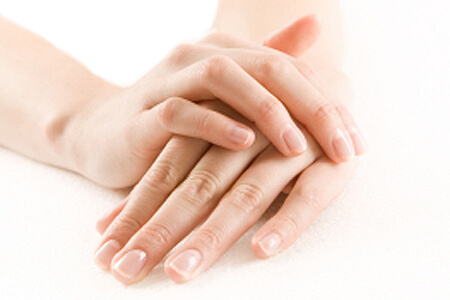
Hand Rejuvenation
Sun spots and discolorations , thin and atrophic skin , wrinkles, visible veins and tendons , are often problems that appear on the back of the hands as you age. They are due to heredity but also to photoaging . A variety of techniques help to rejuvenate the skin of the back of the hands either alone or in combination. So, if the problem is the roughness of the skin , sun spots , discolorations and fine wrinkles, then chemical peels (easyTCA) , microdermabrasion (ecopeel) , pulsed light (IPL) and fractional laser (fractional laser)will improve the color and tone of the skin and give a more youthful look to the hands. If the problem is tumor loss and the hands look “bony” and with visible veins and tendons, the solution is to replenish the lost volume either with implants (fillers) or with fat transferred from another part of the body.
The process in a nutshell
Appearance-Color. Laser skin rejuvenation or phototherapy or chemical exfoliation or mechanical dermabrasion is painless and is done on a visit to the doctor’s office. 1-3 sessions are required depending on the problem. There is usually mild peeling of the skin for 3-5 days. Applying ice, avoiding sun exposure and using regenerating creams is required for the next 10 days.
Volume. Filling the tumor with implants will require injections all over the back of the hand to “fill” the areas with insufficient volume. The hydroxyapatite (Radiesse) or hyaluronic acid is implants (fillers) that give a nice and natural result in 1-2 sessions. Slight swelling and bruising subside within a week. Fillers usually last one to two years.
When we resort to autologous fat transplantation , the fat that is collected by a small liposuction from another place in the body, is injected into the back of the hand. Local anesthesia is usually required. Eczema and swelling subside in 7-10 days. It may need to be repeated (to a lesser extent) in 3-6 months. The end result is permanent.
How should I prepare?
For fat transfer operations it is good to follow the instructions below. If you are a smoker, it is recommended that you quit smoking long before surgery. Smoking can affect your ability to heal. Some medications that increase the risk of bleeding, such as aspirin, non-steroidal anti-inflammatory drugs, and certain vitamins / homeopathic remedies should be discontinued before any surgery.
For all other cases no preparation is required.

